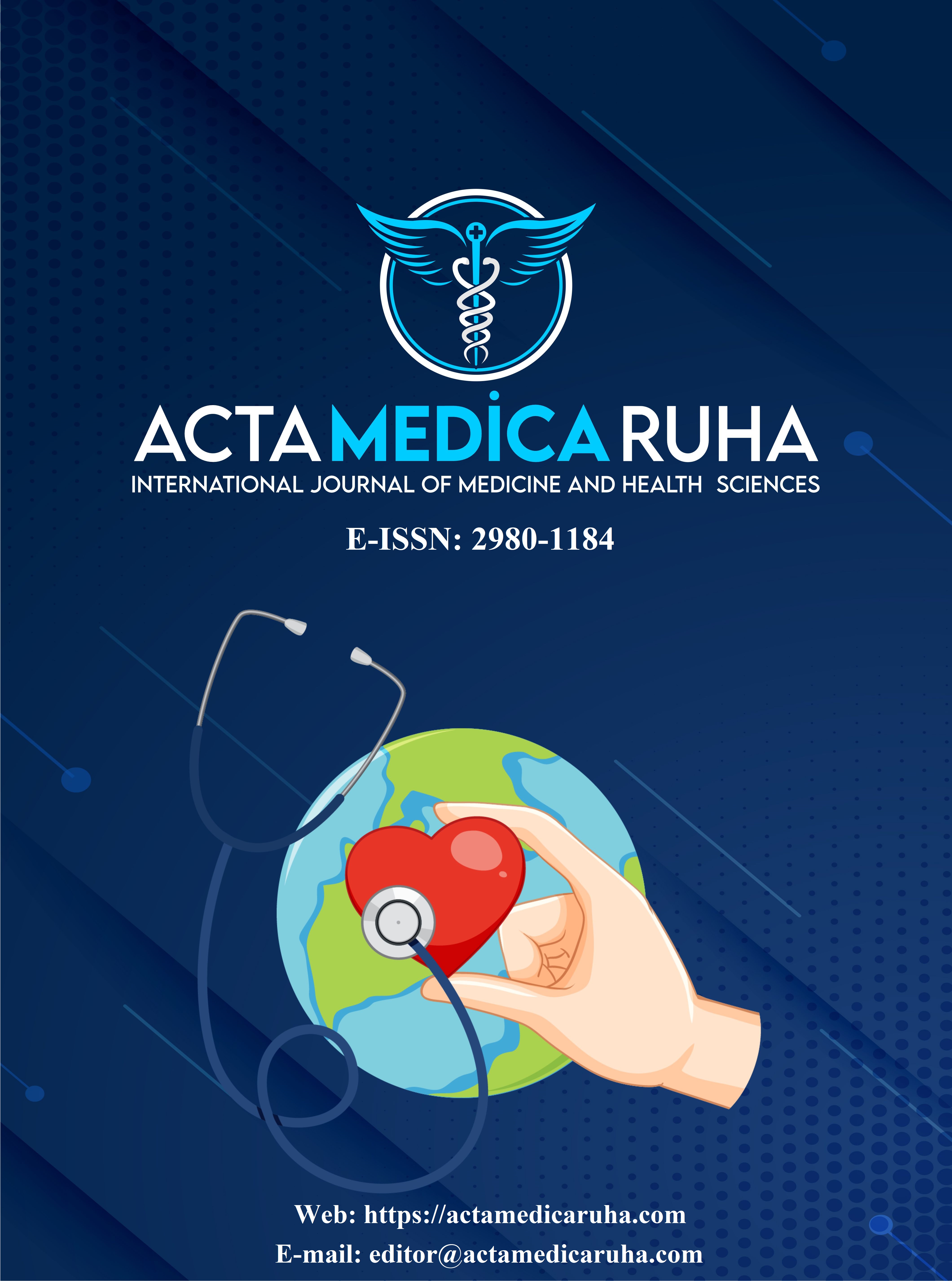Maternal Ambivalence and Related Factors: The Case of Şanlıurfa
Research Article
DOI:
https://doi.org/10.5281/zenodo.15024751Keywords:
Pregnant, Mother, Ambivalence, Psychological Distress, Spousal SupportAbstract
Introduction: Maternal ambivalence refers to both positive and negative emotions associated with mothering. It is an essential factor that may affect maternal and infant health.
Objective: This study aimed to determine maternal ambivalence and related factors among women living in Şanlıurfa province.
Method: The population of this descriptive study consisted of pregnant women over 18 and mothers with children in the 0-2 age group. The sample size was calculated as 172 people according to the values obtained from the pilot study. The data were collected by face-to-face interviews between October and December 2024 using a personal information form, the Maternal Ambivalence Scale (MAS) and the Psychological Distress Scale (PDS). In evaluating the data, percentage, mean, and standard deviation from descriptive statistics, t-test, one way ANOVA test and Pearson Correlation analysis from univariate analysis were used.
Results: In the study, the mean age of the women was 26.3±5.4 years, and 60.4% had primary education or less. 20.9% of the women stated that they did not receive any spousal support during pregnancy, labour and postpartum periods. The mean MAS score was 29.8±0.2, and the mean PDS score was 38.7±0.4. Maternal ambivalence was higher in women without spousal support, and maternal ambivalence decreased as psychological distress increased (p<0.05).
Conclusion: As a result of this study, it was determined that women in Şanlıurfa have a moderate level of maternal ambivalence and that spousal support and psychological distress are factors affecting maternal ambivalence.
References
Koletzko SH, La Marca-Ghaemmaghami P, Brandstätter V. Mixed expectations: Effects of goal ambivalence during pregnancy on maternal well-being, stress, and coping. Appl Psychol Health Well Being. 2015;7(3):249-274. doi:10.1111/aphw.12047
Kızılkaya Beji N, Murat M, Köse S. Perinatal dönem ruh sağlığı sorunları ve hemşirelik yaklaşımı. BSJ Health Sci. 2022;5(1):116-123. doi:10.19127/bshealthscience.897439
Kabukçuoğlu K. Kadın Sağlığı Sorunlarının Psikosomatik Yansımaları. 1st ed. İstanbul: Detay Yayıncılık; 2017.
Pinquart M, Stotzka C, Silbereisen RK. Personality and ambivalence in decisions about becoming parents. Soc Behav Personal. 2008;36(1):87-96.
Martín-Sánchez MB, Martínez-Borba V, Catalá P, et al. Development and psychometric properties of the maternal ambivalence scale in Spanish women. BMC Pregnancy Childbirth. 2022;22(1):625. doi:10.1186/s12884-022-04956-w
Papadima M. Barbara Almond, The Monster Within: The Hidden Side of Motherhood. Published 2012.
Henderson A, Harmon S, Newman H. The price mothers pay, even when they are not buying it: Mental health consequences of idealized motherhood. Sex Roles. 2016;74:512-526.
Rallis S, Skouteris H, McCabe M, Milgrom J. A prospective examination of depression, anxiety and stress throughout pregnancy. Women Birth. 2014;27(4):e36-e42. doi:10.1016/j.wombi.2014.08.002
Henderson A, Harmon S, Newman H. The price mothers pay, even when they are not buying it: Mental health consequences of idealised motherhood. Sex Roles. 2016;74:512-526.
Lozowchuk A, Carroll JE, Hobel C, et al. Partner relationship quality and IL-6:IL-10 trajectories from pregnancy to a year after birth. Brain Behav Immun. 2023;114:407-413. doi:10.1016/j.bbi.2023.09.007
MacLaughlin P, Scarbrough G. “I’m so tired”: The labour of care, infant sleep management, and maternal ambivalence. The Maternal Tug: Ambivalence, Identity, and Agency. 2020;12.
Smith W, Turan JM, White K, et al. Social norms and stigma regarding unintended pregnancy and pregnancy decisions: A qualitative study of young women in Alabama. Perspect Sex Reprod Health. 2016;48(2):73-81. doi:10.1363/48e9016
Ünal E. Annelik Kararsızlığı Ölçeği’nin Türkçe’ye Uyarlaması ve Bazı Demografik-Obstetrik Değişkenler ile Depresyonun Annelik Kararsızlığı Üzerine Etkisi. [Doctoral dissertation]. İnönü Üniversitesi; 2024. Yükseköğretim Kurulu Ulusal Tez Merkezi. Thesis No. 853568.
Klann EM, Wong YJ. A pregnancy decision-making model: Psychological, relational, and cultural factors affecting unintended pregnancy. Psychol Women Q. 2020;44(2):170-186.
Drapeau A, Marchand A, Beaulieu-Prévost D. Epidemiology of psychological distress. Mental Illnesses-Understanding, Prediction and Control. 2012;69(2):105-106.
Barker ED, Kirkham N, Ng J, Jensen SK. Prenatal maternal depression symptoms and nutrition, and child cognitive function. Br J Psychiatry. 2013;203(6):417-421.
Türkiye İstatistik Kurumu. Adrese Dayalı Nüfus Kayıt Sistemi Sonuçları, 2024. Available at: https://data.tuik.gov.tr/Bulten/Index?p=Adrese-Dayali-Nufus-Kayit-Sistemi-Sonuclari-2024-53783 (Access date:10.01.2025)
Koruk F, Eroğlu K, Koruk İ, Çelik K, Güner P. Married men’s perspectives and reproductive behaviors on fertility in the province with the highest fertility rate in Turkey: A mixed-method study. Nobel Medicus. 2022;18(2):89-98.
Avcı N, Şirin F. Farklı etnik kimlik tanımlamalarında bulunan grupların toplumsal bütünleşme ve farklılaşma alanları. [Doctoral dissertation]. Cihad ÖZSÖZ; 2020.
Kessler RC, Andrews G, Colpe LJ, et al. Short screening scales to monitor population prevalences and trends in non-specific psychological distress. Psychol Med. 2002;32(6):959-976. doi:10.1017/S0033291702006074
Altun Y, Ozen M, Kuloglu MM. Turkish adaptation of Kessler psychological distress scale: Validity and reliability study. Anadolu Psikiyatri Dergisi. 2019;20(Supplement 1):23-31. doi:10.5455/APD.12801
Erbil N, Boyraz Yanık HG. Validity and reliability of the Turkish version of the maternal ambivalence scale. Int J Nurs Pract. 2025;31(1):E13319. doi:10.1111/ijn.13319
Lozowchuk A, Carroll JE, Hobel C, et al. Partner relationship quality and IL-6:IL-10 trajectories from pregnancy to a year after birth. Brain Behav Immun. 2023;114:407-413. doi:10.1016/j.bbi.2023.09.007
Bernard O, Gibson RC, McCaw-Binns A, et al. Antenatal depressive symptoms in Jamaica associated with limited perceived partner and other social support: A cross-sectional study. PLoS One. 2018;13(3):e0194338.
Sokoya MR, Farotimi AR, Ojewole F. Women’s perception of husbands’ support during pregnancy, labour, and delivery. IOSR J Nurs Health Sci. 2014;3:45-50.
Doğrul E, Alan Dikmen H. Gebelerde eş desteğinin annelik rolü, beden algısı ve distres düzeyi ile ilişkisi: Tanımlayıcı bir çalışma. Selçuk Sağlık Derg. 2023;4(2):163-175.
Yanılmaz P, Beydağ KD. Primipar Gebelerin Doğum Öncesi Algıladıkları Stres ve Eş Desteği Arasındaki İlişkinin Belirlenmesi. Sağlık Toplumu. 2023;33(2):87-94.
Işık M, Demirgöz Bal M. Doğum Sonrası Dönemde Eş Desteğinin Travma Sonrası Stres Belirti Düzeyine Etkisi. J Sağlık Bilimleri Müdürü 2022;2(2):27-32.
Kılıçgün MY, Kılıçkaya A. Geleneksel annelik ölçeği’nin psikometrik özellikleri: Geçerlik ve güvenilirlik çalışması. İnsan ve Toplum Bilimleri Araştırmaları Dergisi. 2016;5(8):2867-2881.
Bahadır Yılmaz E, Şahin E. Gebelerin prenatal sıkıntı düzeyleri ile ilişkili faktörler. Psikiyatri Hemşireliği Dergisi. 2019;10(3):197-203.
Button S, Thornton A, Lee S, Shakespeare J, Ayers S. Seeking help for perinatal psychological distress: A meta-synthesis of women’s experiences. Br J Gen Pract. 2017;67(663):e692-e699. doi:10.3399/bjgp17X692549
Downloads
Published
How to Cite
Issue
Section
License
Copyright (c) 2025 Acta Medica Ruha

This work is licensed under a Creative Commons Attribution 4.0 International License.









